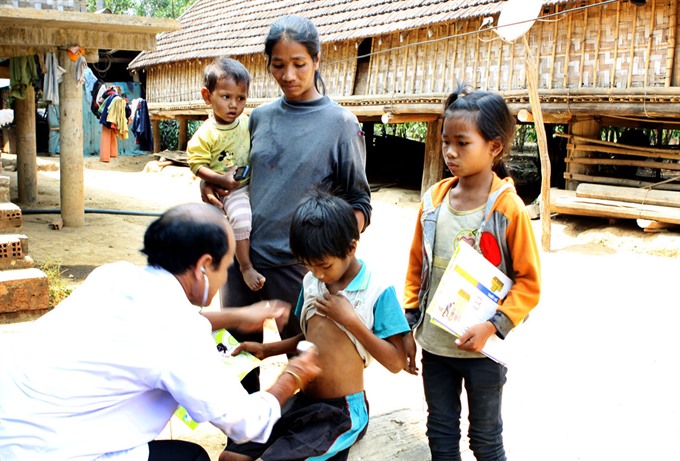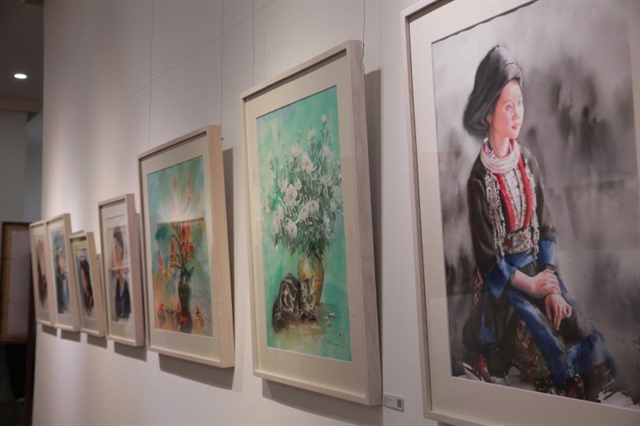 Society
Society

Ethnic minority groups in Việt Nam still struggle with living situations much more difficult than the nation’s average, a recent government survey shows.
 |
| A doctor examines an Ê đê ethnic-minority child in the Central Highland’s Đắk Lắk Province. A recent Government survey says a quarter of ethnic households live below the poverty line. — VNA/VNS Photo Dương Ngọc |
HÀ NỘI – Ethnic minority groups in Việt Nam still struggle with living situations much more difficult than the nation’s average, a recent government survey shows.
The Government’s Ethnic Committee and the General Statistics Office on Thursday released the results of the 2015 socio-economic survey of the nation’s 53 ethnic minorities, which was conducted in 51 out of the 63 provinces across the country.
This is the first comprehensive, nation-wide survey on the socio-economic aspects of each ethnic group.
The survey found that as of July 1, 2015, the total population of ethnic minorities was 13.39 million, accounting for 14.6 per cent of the country’s population. A majority of them lived in rural areas.
The number of men was slightly higher than that of women—50.3 per cent and 49.7 per cent respectively. The situation was contrary to the country’s overall population structure, where there were fewer men than women.
Life expectancy for ethnic minorities averaged 69.9 years, 3.3 years lower than the national average. Ethnic men live 67.1 years and women 72.9 years on average.
Poor households account for nearly a quarter of the ethnic population in 2015. The figure more than triples the country’s poverty rate of 7.0 per cent.
The monthly per capita income of ethnic minorities was VNĐ1.16 million (US$52), much lower than the national average of VNĐ2.8 million ($125.6).
Most of the income comes from the agriculture, forestry, fishery and aquaculture sectors, as up to 81.9 per cent of working ethnic—aged 15 years old and above—work in these fields. The rate nearly doubles that of the whole nation.
While four out of 10 ethnic people went to high school, nearly 21 per cent of ethnic people at the age of 15 were unable to read, write or understand a simple written sentence in Vietnamese.
More than 15 per cent of households had to live in makeshift houses, and a quarter of households were not able to access clean water.
However the number of household receiving electricity from the national grid nearly reached 94 per cent. Two-thirds ethnic minorities were reported to have access to radio, and nearly 90 per cent were able to watch TV.
According to Nguyễn Bích Lâm, head of the General Statistics Office, the survey’s findings will serve as a basis for the establishment of a database on Vietnamese ethnic minorities to help with socio-economic development policies for ethnic-inhabited areas. – VNS





 Brandinfo
Brandinfo